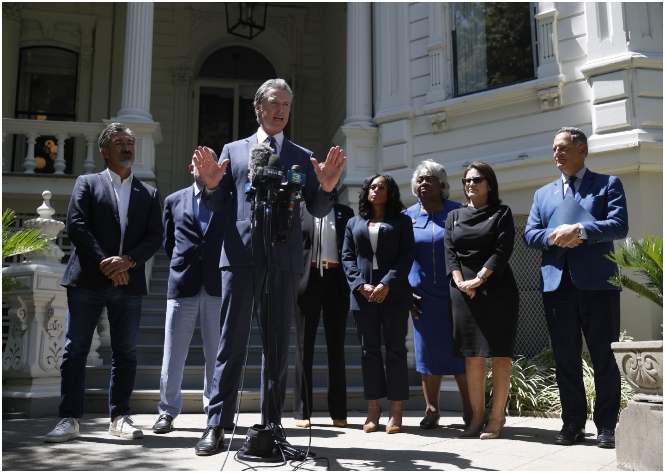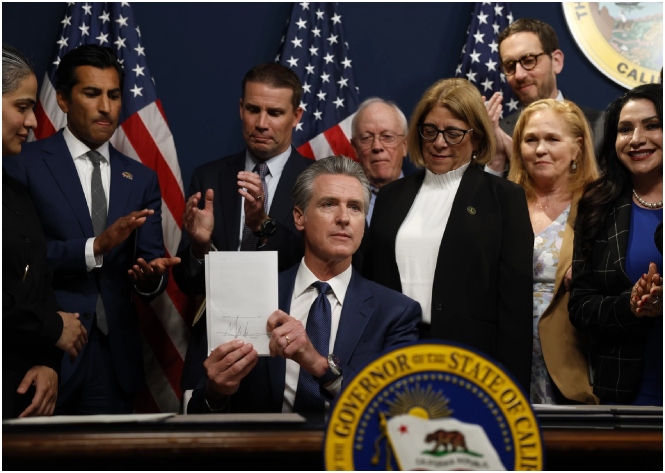California Democrats have found themselves at the center of an escalating redistricting battle with Donald Trump and Texas Republicans — a conflict that began as a bluff and spiraled into one of the most consequential partisan fights of Trump’s second term.
The saga began when rumors emerged in April that Texas Republicans, under pressure from Trump, were preparing to redraw congressional maps years ahead of schedule. In response, Rep. Zoe Lofgren, chair of California’s 43-member Democratic delegation, briefly entertained the idea of retaliating with a mid-decade redistricting of California. Legal experts initially dismissed the prospect as implausible given California’s independent redistricting commission, a body created by voters to prevent partisan gerrymandering.
Yet what started as strategic posturing quickly escalated. Gov. Gavin Newsom, who had initially resisted undermining the commission, embraced the idea by June. His public statements and social media posts signaled a willingness to counter Texas, turning California into the frontline of a broader national redistricting war.

By mid-summer, California Democrats began seriously considering how to suspend the commission’s authority. Doing so would require a statewide ballot measure amending the state constitution — a legally fraught undertaking that carried risks of litigation and voter backlash. Newsom’s political team, drawing on veterans from his 2021 recall defense, framed the issue narrowly: temporary new maps would only take effect if Texas or another red state pursued mid-cycle redistricting.
Meanwhile, nearly 50 lawmakers, strategists, and redistricting experts held marathon sessions, drafting potential maps aimed at netting Democrats five additional congressional seats to offset GOP gains in Texas. Care was taken to avoid violations of the Voting Rights Act, with map-drawers rejecting extreme “bacon-strip” gerrymanders in favor of legally defensible boundaries.
The political stakes grew rapidly. House Minority Leader Hakeem Jeffries and former Speaker Nancy Pelosi threw their support behind the effort, while House Majority PAC and labor unions began mobilizing donors for what could become a \$100 million campaign. Critics, including Republicans and independent redistricting advocates, denounced the maneuver as a betrayal of California’s voter-approved reforms.
Legal experts warn that California’s gambit sets a precedent that could fuel a wave of retaliatory redistricting nationwide. Already, GOP officials in Indiana, Ohio, Missouri, and Florida are exploring mid-decade redraws, while Democrats in New York and Illinois weigh their options.
The showdown underscores the fragile legal balance between state constitutional reforms and raw partisan power. It also raises fundamental questions about the future of redistricting law: whether independent commissions can survive in an era of “mutually assured destruction,” or whether mid-cycle map-drawing will become a normalized weapon in national politics.
As Assembly Speaker Robert Rivas noted after California lawmakers voted overwhelmingly to advance the ballot measure, the state’s strategy marks a turning point: “We’ve been trying to play defense. But we finally just threw up our hands and said, ‘We’ve got to flip the script.’”

